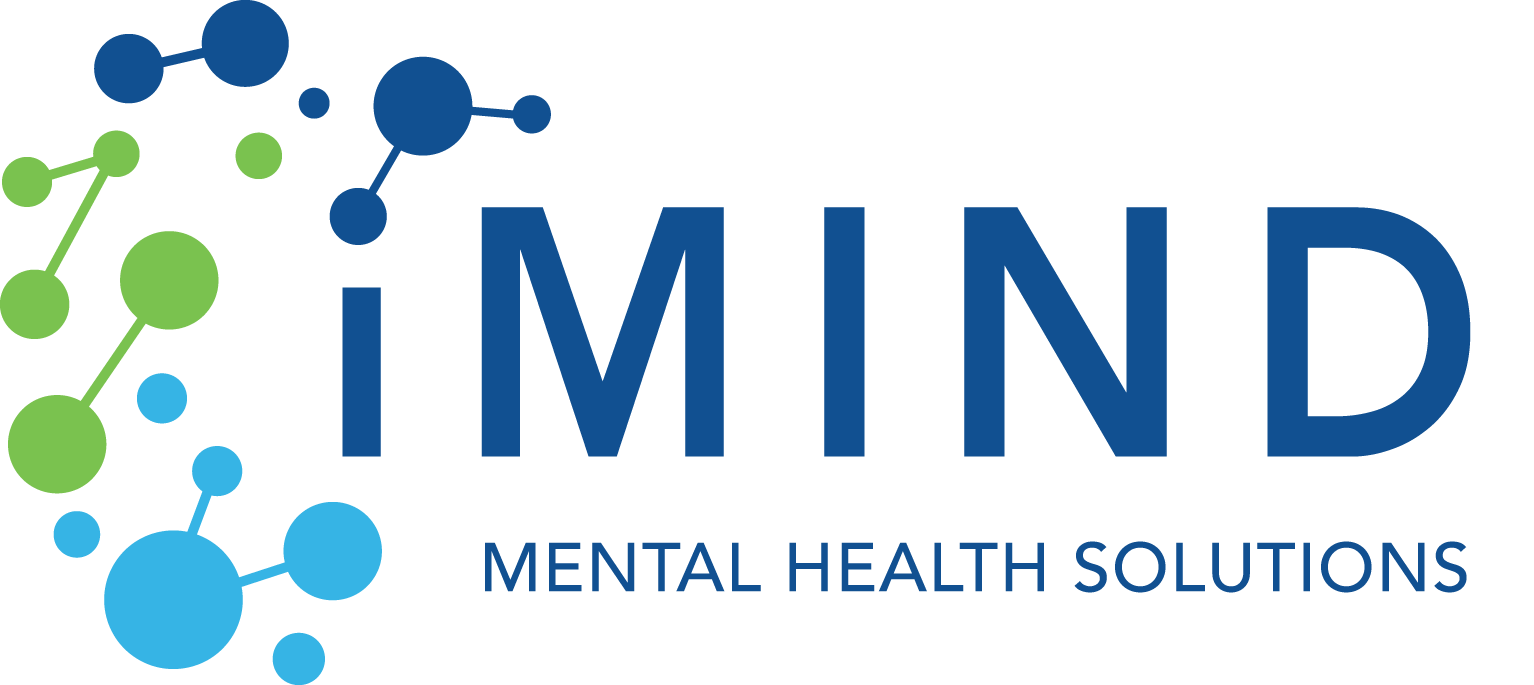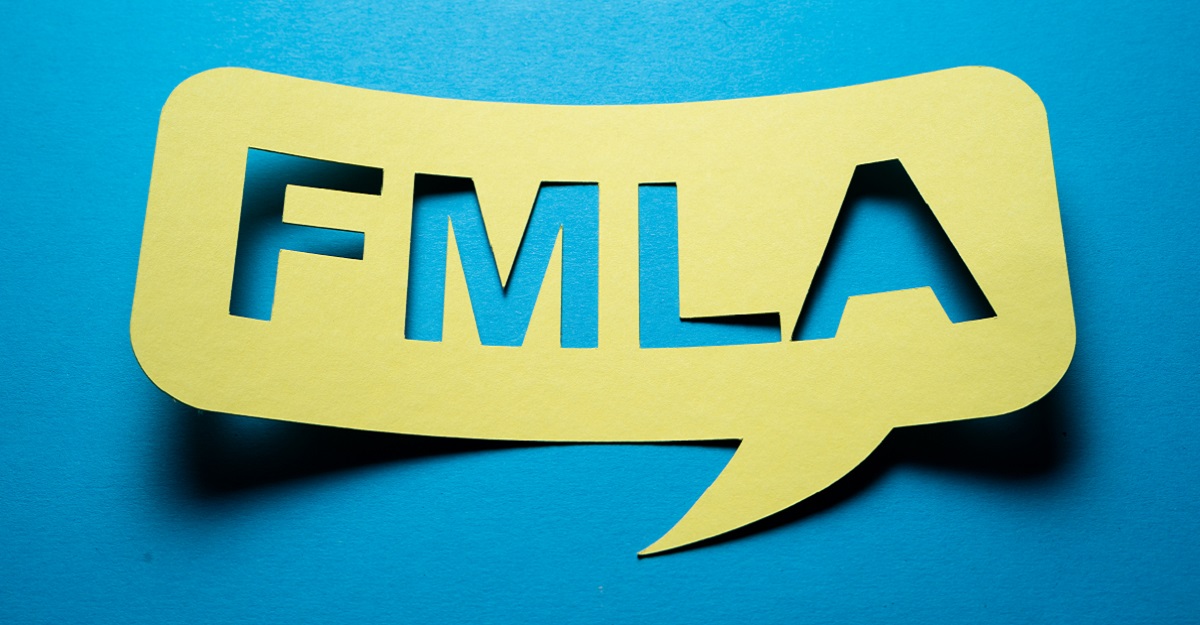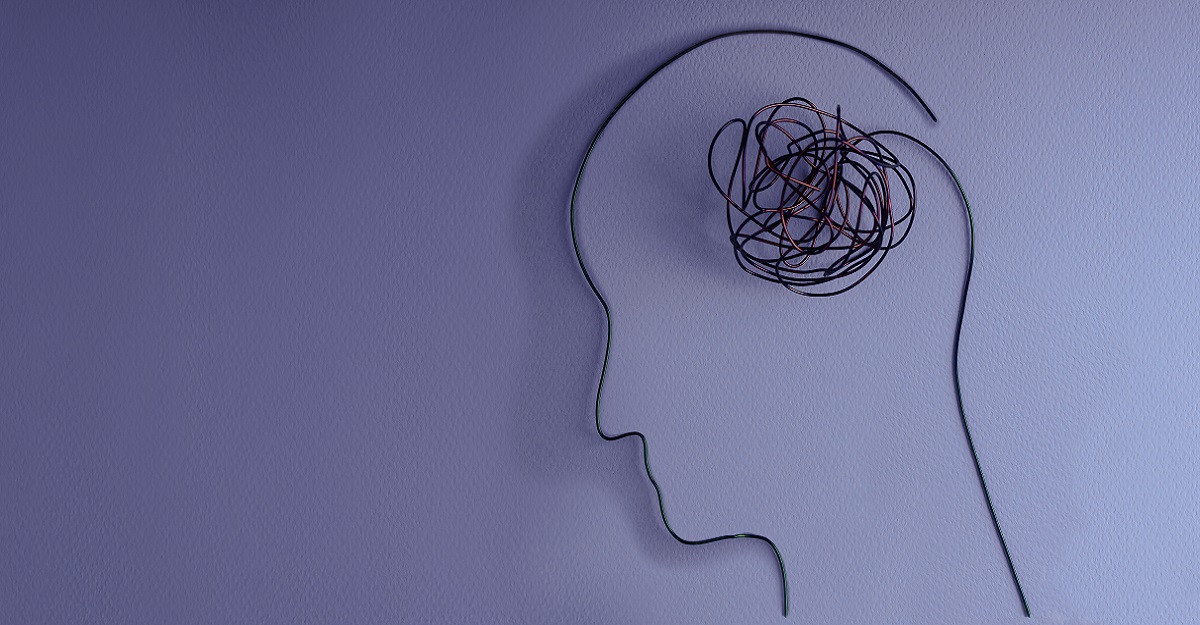Treatment for Stress
Everyone feels stressed sometimes. However, it can be overwhelming, especially if it becomes chronic. Fortunately, the mental health professionals at iMind are here to help.

What is Stress?
Stress is the body’s response to challenges, also known as stressors. Whether arising from internal conditions or external perceived threats, stressors trigger the “fight or flight” mechanism, setting off a cascade of hormonal and neurological shifts. Stress can be both acute (short-term) and chronic (long-term), with each type having distinct effects on mental and physical health. While stress is often viewed negatively, it is not always harmful; in some cases, stress can improve performance and adaptability. But when stress becomes either too severe or too persistent, it can give rise to a variety of health challenges, including anxiety and depression.

What is Tension? How is that Different from Stress?
Stress and tension are closely related but not entirely the same. Stress is the body’s response, both psychological and physiological, to situations that are viewed as challenging or potentially harmful. Tension, on the other hand, is often a symptom or manifestation of stress and typically describes a state of mental or emotional strain, or physical tightness. Understanding the nuanced differences between these two can aid in more effective coping strategies.
Stress involves a cognitive appraisal process – where the situation is evaluated for its potential harm, threat, or challenge. Emotional responses like fear or anxiety are also integral to stress. Tension, on the other hand, often surfaces as a secondary emotional or physical state that may accompany stress. It usually lacks the broader cognitive appraisal and survival mechanisms inherent to stress.
Stress and Tension Symptoms
Stress and tension each have distinct sets of symptoms. Stress triggers a more comprehensive physiological and psychological response that can include anything from headaches to anxiety. Tension, often a byproduct of stress, is more narrowly defined and can result in symptoms like muscle tightness and mental strain.
Awareness of these symptoms is crucial for early intervention and effective treatment.
Symptoms of Stress
- Anxiety or panic attacks
- Changes in appetite
- Difficulty concentrating
- Digestive problems
- Feeling Overwhelmed
- Headaches or Migraines
- Increased substance use (alcohol, drugs, tobacco)
- Irritability/Mood Swings
- Lack of Motivation
- Rapid heartbeat/palpitations
- Sleep disturbances, such as insomnia
- Social withdrawal or isolation
- Trouble with decision-making
Symptoms of Tension
- Clenched jaw/teeth grinding
- Difficulty relaxing/letting go of concerns
- Irritable or snappy behavior
- Mental fatigue/feeing on edge
- Muscle stiffness or soreness, particularly the neck, shoulders or back
- Overreaction to minor irritations
- Overreaction to minor irritations
- Persistent worry or unease
- Shallow or rapid breathing
- Tendency to fidget/inability to sit still
It’s important to address stress and tension before they become chronic and lead to more serious conditions such as high blood pressure and heart disease.
Both prolonged stress and unresolved tension can also contribute to the development of mental health issues such as anxiety disorders and depression.
However, the coping mechanisms and recommended treatment may differ based on the underlying cause of stress and tension.
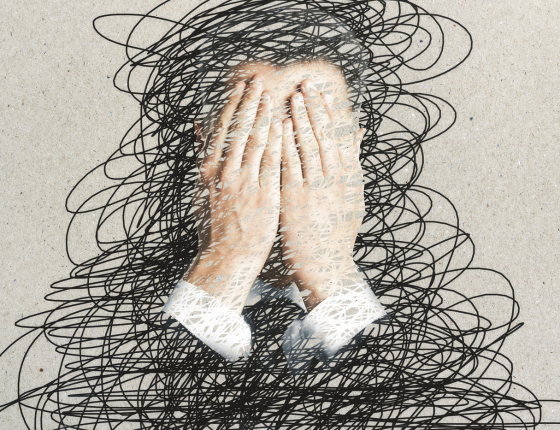
How Stress Feels
Stress is real, and it has real effects. Unfortunately, it can be a negative influence on just about every aspect of life.
A Range of Physical Problems
Stress changes the way we interact with the world, and it can wreak havoc on our social lives. It also can show up in and on our bodies in unexpected ways.
“Difficulty drawing in deep breaths. You know how when you take a deep breath, you inhale until you hit a peak, and get this satisfying feeling like something is unlocking in your lungs? When I’m stressed, I don’t get that satisfying feeling. I’ll end up taking deeper and deeper breaths to try and force it, but it doesn’t work that way.”
-Muppet_Holocaust, Reddit
“I had a really bad breakup around the home run to finishing college. With all the stress of my final year project plus having to see the guy in class every day and reflecting on our relationship and seeing all the holes, the left side of my face broke out in this dry yet oily, spotty while also dry patches for a few months after.”
-euies, Reddit
“It’s 3:45 AM and I was awoken by pain running through one side of my body. No rhythm or reason for it. Pains in my chest, arm, face, and feet. Comes on like a ton of bricks then just as fast, gone.
I’ve been to so many doctors, and they tell me it’s stress. I quit my job, pulled my kid from daycare and stayed home. I changed my entire life and for a year I’ve just continued to decline.
I went to a new dentist today, and you know what he told me? I’m grinding and cracking my teeth, says one of my teeth is broken in half. I need to consider getting my stress under control.”
-Worried_River_2318, Reddit
“I have tinnitus and clench my jaw my pretty bad. I also get dandruff and have suffered from alopecia during particularly stressful times. The backs of my hands get all dry and itchy as well.”
-can_u_tell_its_me, Reddit
“Stress for me causes me to be irritable, anxious, depending on severity it can make it feel like I have a huge rock in my stomach. It causes ulcers, headache, racing heart, racing mind.”
-kaismama, Reddit
“I spent most of my childhood and teenage years feeling constantly nauseous. Less constant now, but still happens a lot.”
-helbigsharto, Reddit
“I developed IBS. Loose bowels when you’re stressed sucks.”
-HuntThePearlOfDeath, Reddit
“Insomnia, hypersomnia, and binge eating. Stress really does suck.”
-Alicanto_Xenica, Reddit
A Range of Physical Symptoms
Stress changes the way we interact with the world, and it can wreak havoc on our social lives. It also can show up in and on our bodies in unexpected ways.
“Difficulty drawing in deep breaths. You know how when you take a deep breath, you inhale until you hit a peak, and get this satisfying feeling like something is unlocking in your lungs? When I’m stressed, I don’t get that satisfying feeling. I’ll end up taking deeper and deeper breaths to try and force it, but it doesn’t work that way.”
-Muppet_Holocaust, Reddit
“I had a really bad breakup around the home run to finishing college. With all the stress of my final year project plus having to see the guy in class every day and reflecting on our relationship and seeing all the holes, the left side of my face broke out in this dry yet oily, spotty while also dry patches for a few months after.”
-euies, Reddit
“It’s 3:45 AM and I was awoken by pain running through one side of my body. No rhythm or reason for it. Pains in my chest, arm, face, and feet. Comes on like a ton of bricks then just as fast, gone.
I’ve been to so many doctors, and they tell me it’s stress. I quit my job, pulled my kid from daycare and stayed home. I changed my entire life and for a year I’ve just continued to decline.
I went to a new dentist today, and you know what he told me? I’m grinding and cracking my teeth, says one of my teeth is broken in half. I need to consider getting my stress under control.”
-Worried_River_2318, Reddit
“I have tinnitus and clench my jaw my pretty bad. I also get dandruff and have suffered from alopecia during particularly stressful times. The backs of my hands get all dry and itchy as well.”
-can_u_tell_its_me, Reddit
“Stress for me causes me to be irritable, anxious, depending on severity it can make it feel like I have a huge rock in my stomach. It causes ulcers, headache, racing heart, racing mind.””
-kaismama, Reddit
“I spent most of my childhood and teenage years feeling constantly nauseous. Less constant now, but still happens a lot.”
-helbigsharto, Reddit
“I developed IBS. Loose bowels when you’re stressed sucks.”
-HuntThePearlOfDeath, Reddit
“Insomnia, hypersomnia, and binge eating. Stress really does suck.”
-Alicanto_Xenica, Reddit
What Causes Stress and Tension?
Stress and tension arise from a multitude of factors that can be broadly categorized into external and internal triggers. While stress originates from a complex interaction of physiological, psychological, and environmental elements, tension often results as a secondary manifestation of stress or other psychological states.
Causes of Stress

External Triggers
Factors beyond your immediate control can contribute to stress.
Work-related pressure such as deadlines, excessive workloads, job insecurity, conflicts with coworkers and harassment can lead to stress. Not only does your productivity on the job suffer, but your physical health can be impacted as well.
The 2023 Work in America Survey from the American Psychological Association found that over half of workers, or 55 percent, agreed that their employer feels the environment is “a lot mentally healthier than it is.” That’s not all… Close to 60 percent revealed that they had experienced burnout symptoms, such as not feeling motivated, being exhausted emotionally, and wanting to quit.
Major life changes – whether good or bad –can increase stress. A marriage, a divorce, moving, loss of a loved one… it all impacts the psyche.
Financial strain can be stressful as well. Carrying debt, being unemployed, or other monetary issues can skyrocket your stress level.
Finally, social factors can play a big role. Discrimination, social isolation, and/or relationship issues can add to your stress also.

Internal Factors
We all carry our own set of perceptions, beliefs, and tendencies into the world. These can also cause stress (or, in some cases, protect us from it).
Cognitive factors that contribute to stress are perfectionism, a pessimistic outlook, or unrealistic expectations. Perfectionism “is a trait that makes life an endless report card on accomplishments or looks.” Since no one is perfect, and everyone makes mistakes, this sets individuals up for consistent, enduring stress. People with a pessimistic outlook tend to see the worst and/or expect it. Studies show that there is a genetic link for pessimism. Unrealistic expectations are “rigid. They don’t leave room for changing circumstances or allow us or others to be flexible… Your expectations cause more trouble than they solve.”
Stress can also be a byproduct of unresolved emotional issues or mental health conditions such as anxiety and depression.
While stress can affect your health, your health can also affect your stress. Chronic illnesses, hormonal imbalances, or other medical conditions can also induce stress. If you are experiencing stressful life events before a chronic illness diagnosis, you may experience even more distress. Unfortunately, it all adds up.
Causes of Tension

Physical Factors
What we put our bodies through can contribute to tension.
Poor posture, or sitting or standing improperly for long periods, can lead to muscle tension. Overexerting yourself physically without proper rest also can contribute.
In fact, stress itself causes tension, because your muscles automatically contract in response to a stressful situation or thought. When you are in a constant state of stress, this will lead to muscular pain and a feeling of being sore.

Psychological Factors
Overthinking, worry, or cognitive strain often result in a feeling of tension, resulting in a feeing of ‘mental overload.’
Anger, fear, or unresolved emotions can manifest as physical or emotional tension.
The psychological response to your environment can elevate tension levels, too. Noise pollution is one culprit: Constant exposure to loud noise can increase tension levels. Chaotic environments, such as cluttered or disorganized spaces, can also contribute to feelings of tension.
Your Brain on Stress
Your brain adapts to the environment you are in. Stressful situation are no different: Studies show that the brain changes in response to chronic stress. If you are in a dangerous environment, for example, your brain can adapt in ways that make to make you more aware of dangers lurking in your environment. Some may become hypervigilant – constantly on edge, incessantly scanning the environment for threats.
If this condition persists, irreversible damage can occur. Most notably, a shrinking of the hippocampus – a brain area that is critical for learning and memory. Some researchers believe that the damage caused by chronic stress can ultimately lead to Alzheimer’s.
The good news is that, if stress is adequately addressed in time, treatment such as therapy and medication can help reduce the negative effects of stress.
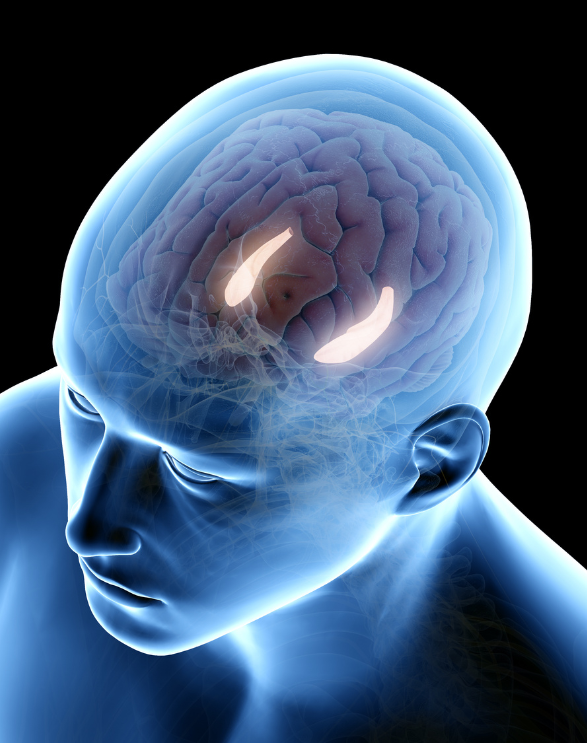
Treatment for Stress
Treatment for stress and tension often involves a multifaceted approach that includes medical, psychological, and lifestyle interventions. While stress management typically focuses on broader coping strategies, including cognitive-behavioral therapies and medication, tension often requires more specific interventions, such as physical relaxation techniques. Identifying the appropriate treatment is critical for effectively managing stress and tension over the long term.

Therapy
One-on-one talk therapy can be an effective stress-reducer. There are several modalities that can help you manage stress.
Cognitive behavioral therapy (CBT) addresses maladaptive thought patterns and behaviors that contribute to stress. Over time, and with practice, your brain learns new habits so that you tend to think in a more resilient, healthier way. CBT is effective for a range of other conditions as well, including anxiety and depression,
Mindfulness-based stress reduction (MBSR) can also be helpful in minimizing stress. It utilizes mindfulness meditation to aid individuals in becoming aware of their thoughts and reactions to stressors. Similarly, emotional regulation in the form of mindfulness or emotional intelligence training can help manage psychological tension.

Lifestyle Modifications
The way you live can affect your levels of stress and tension. Your lifestyle can contribute to stress or lessen its effects.
Thankfully, there are several things you can do to help yourself feel less stressed.
Regular physical activity is at the top of the list. It releases endorphins, which naturally counteract stress.
Next up is diet and nutrition. Balanced meals rich in essential nutrients can enhance your wellbeing and resistance to stress.
Finally, developing and maintaining your connections with other people can create a buffer against stress as well. Don’t neglect getting together with friends or making new ones, as they are good for your mental health.
Medication for Stress
Stress can be treated with a variety of medications.
Benzodiazepines (commonly referred to as benzos) are particularly effective in calming stress. However, they come with a risk of developing a dependency and are classified as a controlled substance. They also have been linked with dementia.
In fact, physicians will usually only prescribe benzos for a limited term of a few weeks. When needed, however, this medication can be a lifesaver, allowing people suddenly faced with significant life events (such as a death of a spouse or loved one) to experience relief from symptoms while starting therapy or other treatments.
In severe cases of stress, longer-term courses of anti-anxiety or anti-depressant medications may be prescribed.

Biofeedback
Clenched muscles, a faster heart rate, and rapid breathing… stress causes a distinct physiological response. Calming these responses can make you feel calmer, too, as relaxation releases endorphins.
Biofeedback is a way to train your body to respond in a healthier way to stress. Non-invasive yet effective, it employs sensors to teach relaxation techniques by providing real-time data about bodily functions like heart rate and muscle tension.
The best part is, there are no side effects and no recovery time is needed. It works for more than just stress – those suffering with depression, ADHD, anxiety and other mental health conditions can benefit from biofeedback as well.
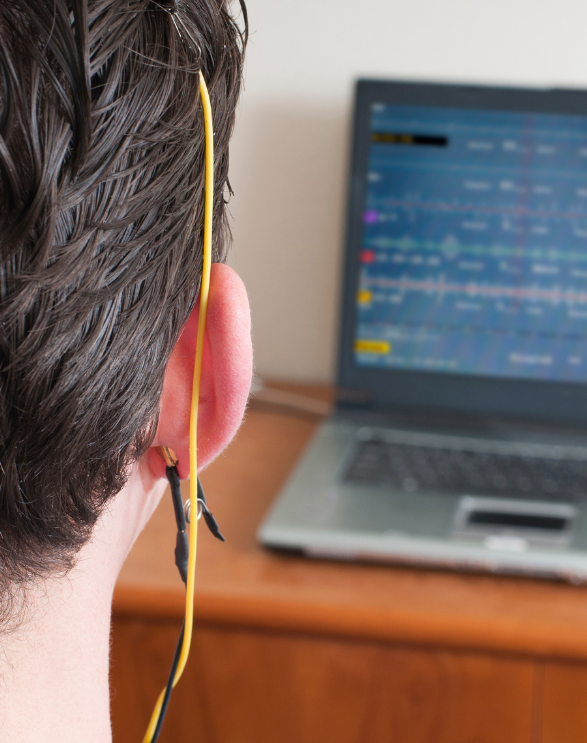
Stress Can Be Controlled
For many, the transformation from being overwhelmed by stress and tension to efficiently managing them begins with self-awareness. This is often the first step toward empowerment and better mental wellbeing.
Don’t underestimate the power of professional guidance and support. Therapists, doctors, and other healthcare providers can offer invaluable expertise and resources to help you navigate this path. Allow them to help you identify the ways stress and tension uniquely manifest in your life and tailor coping strategies and treatments to your personal needs, making them far more effective.
It’s vital to recognize that you’re not alone in your journey. Millions of people around the world are grappling with similar challenges, and there’s a broad community of individuals and professionals committed to finding solutions. As you take steps to manage stress and tension, know that each stride forward not only contributes to your own well-being but also adds to the collective understanding of how we can all live healthier, more balanced lives.

- American Psychological Association. (2023). 2023 Work in America Survey. Apa.org; American Psychological Association.
- Bates, T. C. (2015). The glass is half full and half empty: A population-representative twin study testing if optimism and pessimism are distinct systems. The Journal of Positive Psychology, 10(6), 533–542.
- Harvard Health Publishing. (n.d.). Protect your brain from stress. Harvard Health.
- He, Q., Chen, X., Wu, T., Li, L., & Fei, X. (2019). Risk of Dementia in Long-Term Benzodiazepine Users: Evidence from a Meta-Analysis of Observational Studies. Journal of Clinical Neurology (Seoul, Korea), 15(1), 9–19.
- How to Relinquish Unrealistic Expectations. (2022, June 16). Psych Central.
- McEwen, B. S. (2017). Neurobiological and systemic effects of chronic stress. Chronic Stress, 1(1), 247054701769232.
- Psychology Today. (2019). Perfectionism | Psychology Today. Psychology Today.
Other Conditions We Treat
Mental Health Resources
-
Can You Use FMLA for Mental Health?
Yes, under the FMLA, eligible employees can take up to 12 weeks of unpaid leave per year to address qualifying family-related or health issues – including mental health ones – without the fear of losing their jobs. Here are the general eligibility criteria for both employees and employers…
-
What is the Hardest Mental Illness to Have?
Mental health is a complex part of our wellbeing, deeply personal and uniquely challenging for each one of us. When it comes to mental illnesses, there is no one-size-fits-all. Each condition brings its own set of obstacles and experiences. When we ask, “What is the hardest mental illness to have?” the answer is far from…
-
Does My Child Have ADHD?
Attention-Deficit/Hyperactivity Disorder (ADHD) is a neurodevelopmental disorder commonly recognized in childhood. ADHD manifests through pronounced symptoms of distractibility, impulsiveness, and, in many cases, excessive activity that is beyond the expected behavior for a person’s age and development.
-
Can You Use FMLA for Mental Health?
Yes, under the FMLA, eligible employees can take up to 12 weeks of unpaid leave per year to address qualifying family-related or health issues – including mental health ones – without the fear of losing their jobs. Here are the general eligibility criteria for both employees and employers…
-
What is the Hardest Mental Illness to Have?
Mental health is a complex part of our wellbeing, deeply personal and uniquely challenging for each one of us. When it comes to mental illnesses, there is no one-size-fits-all. Each condition brings its own set of obstacles and experiences. When we ask, “What is the hardest mental illness to have?” the answer is far from…
-
Does My Child Have ADHD?
Attention-Deficit/Hyperactivity Disorder (ADHD) is a neurodevelopmental disorder commonly recognized in childhood. ADHD manifests through pronounced symptoms of distractibility, impulsiveness, and, in many cases, excessive activity that is beyond the expected behavior for a person’s age and development.
Latest News
-
Top 10 Questions About Art Therapy for Mental Health
Art therapy has recently gained recognition for its unique blend of healing therapy and personal expression. Despite its growing popularity, there seems to be some misunderstanding about what art therapy entails, who it can benefit, and how it differs from other forms of therapy.
-
ADHD Strengths: The Positive Side of Attention Deficit Hyperactivity Disorder
Scattered minds, fidgety bodies, and difficulty focusing. Attention Deficit Hyperactivity Disorder (ADHD) often gets painted in shades of struggle. But what if there’s a brighter side to the story? What if, beneath the challenges of ADHD, lie unique strengths just waiting to be unlocked?
We accept most major insurances and private pay options are available









If you do not see your insurance carrier above, please contact us to verify your benefits
